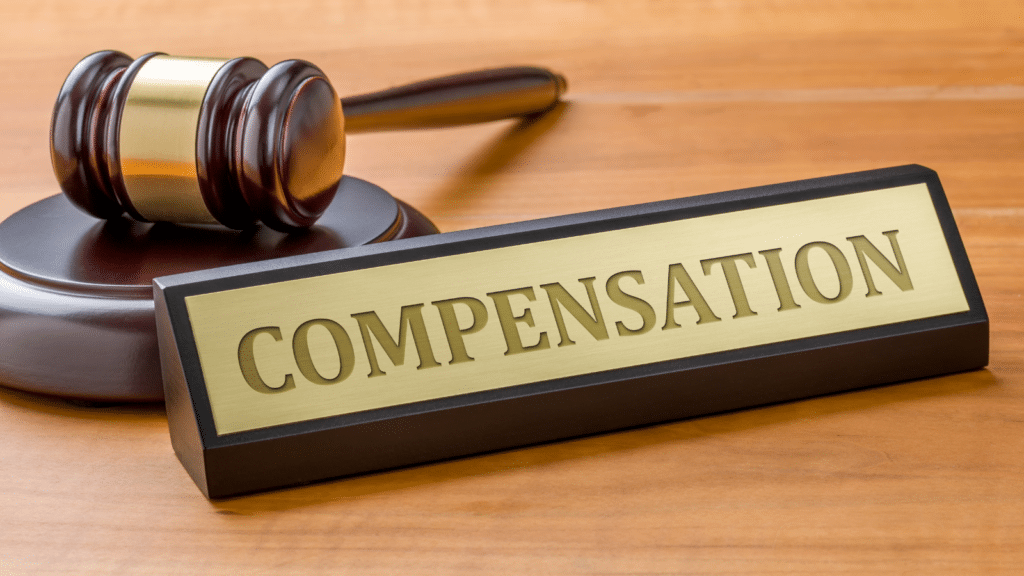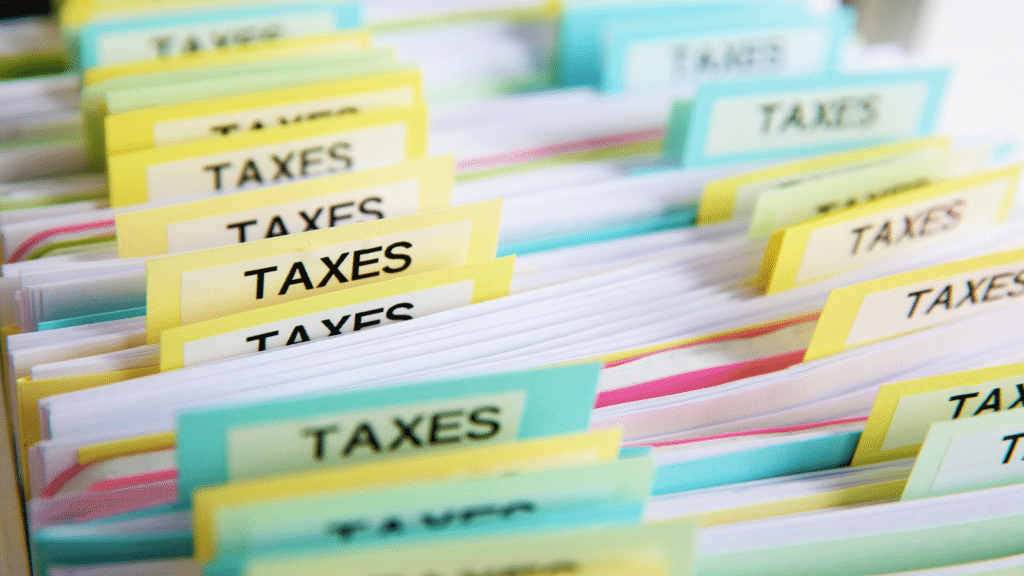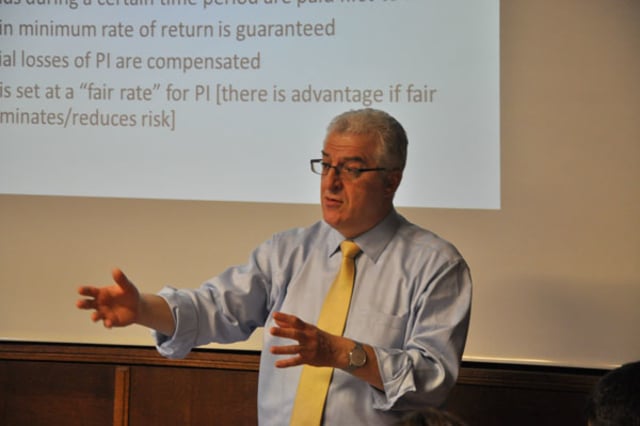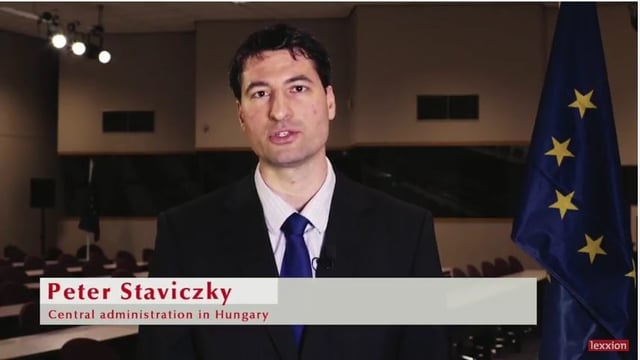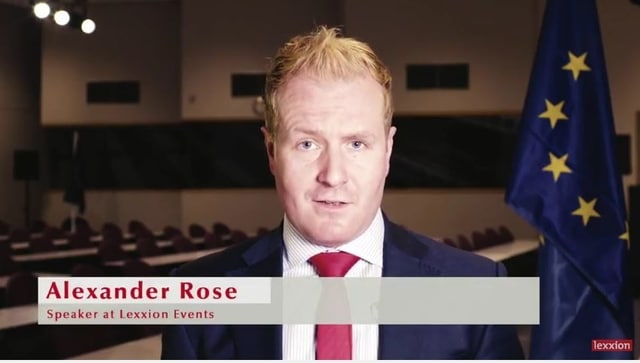Introduction In June 2016, the Commission received a complaint from the Medical Chamber of Slovenia – a professional organisation of private medical doctors and dentists practicing in Slovenia – concerning alleged State aid granted by Slovenia to public hospitals and public healthcare centres. With decision SA.45844, the Commission recently decided that the public funding of public hospitals and healthcare centres […]
State Aid Law
Blog
State Aid Uncovered Blog
In Lexxion’s State Aid Uncovered blog, Prof. Phedon Nicolaides publishes weekly critical analyses of recent State aid judgments and decisions. Each post presents the key points of a court judgment or EU Commission decision, places it in the context of similar case law or practice, assesses the underlying reasoning and highlights any inconsistencies or contradictions.
Guest contributions from other State aid experts will also be published on the blog at irregular intervals to complement the content of the blog posts.
7. January 2025 |
State Aid Uncovered
by Phedon Nicolaides
3. December 2024 |
State Aid Uncovered
by Phedon Nicolaides
Introduction A perennial question by aggrieved investors who feel cheated by u-turns in public policy is: “May I claim compensation for damage that I have suffered as a result of non-payment of the State aid that was promised to me?” As a result of recent case law, it is now clear that there are several answers to this question: First, […]
26. November 2024 |
State Aid Uncovered
by Phedon Nicolaides
Introduction This article reviews two judgments concerning a claim that compensation does not constitute State aid and a complaint that the Commission had failed to act, respectively. The latter case is particularly interesting because it is probably the only judgment in the past decade or two that the Court of Justice has actually upheld a claim that the Commission breached […]
19. November 2024 |
State Aid Uncovered
by Phedon Nicolaides
Introduction In June 2016, the Commission received a complaint from the Medical Chamber of Slovenia – a professional organisation of private medical doctors and dentists practicing in Slovenia – concerning alleged State aid granted by Slovenia to public hospitals and public healthcare centres. With decision SA.45844, the Commission recently decided that the public funding of public hospitals and healthcare centres […]
12. November 2024 |
State Aid Uncovered
by Phedon Nicolaides
Introduction The Commission’s block exemption regulations and the guidelines do not cover exhaustively State aid for all conceivable policy objectives. For example, there are no specific rules on investment subsidies for large enterprises in non-assisted regions. This does not mean that Member States may not grant State aid to a large company to manufacture a product they consider important. Rather, […]
5. November 2024 |
State Aid Uncovered
by Phedon Nicolaides
Introduction France notified a measure to grant State aid to ProLogium for the implementation of the Promotheus R&D project which concerned the development of solid-state batteries [SSB] for electric vehicles. ProLogium is a large enterprise with 758 employees. The Commission approved the measure in decision SA.106740.[1] The aid measure has several unusual features. First, ProLogium committed to disseminate the scientific […]
29. October 2024 |
State Aid Uncovered
by Phedon Nicolaides
Introduction Member States are free to determine what the regard as a service of general economic interest [SGEI]. The Commission may only check whether the definition is free of manifest error and that any compensation that is provided conforms with the conditions laid down in the 2012 SGEI package. Member States commit a manifest error when they designate as SGEI […]
29. October 2024 |
State Aid Uncovered
by Phedon Nicolaides
Introduction Taxes are burdens on undertakings. They cannot be State aid. However, tax exemptions or reductions can be State aid if they cannot be objectively justified. When a tax measure is in the form of a reduction or exemption, it is relatively easy to establish its selectivity in the meaning of Article 107(1) TFEU. However, when a tax is levied […]
16. October 2024 |
State Aid Uncovered
by Phedon Nicolaides
The annual report on the 2023 EU budget by the European Court of Auditors finds that in the field of State aid national authorities wrongly supported ineligible costs. Errors in public procurement and State aid were the largest source of irregularities. Main findings concerning public procurement and State aid “The risk of error is high for expenditure subject to complex […]
15. October 2024 |
State Aid Uncovered
by Phedon Nicolaides
Introduction On 26 September 2024, the Court of Justice [CJEU] delivered four judgments in four related cases: C-790/21 P, Covestro Deutschland v Commission C-792/21 P, AZ v Commission C-794/21 P, Germany v Commission C-795/21 P, WEPA Hygieneprodukte v Commission All cases concerned appeals against the corresponding judgments of the General Court by which it dismissed the actions for annulment of […]
3. December 2024 |
State Aid Uncovered
by Phedon Nicolaides
Introduction A perennial question by aggrieved investors who feel cheated by u-turns in public policy is: “May I claim compensation for damage that I have suffered as a result of non-payment of the State aid that was promised to me?” As a result of recent case law, it is now clear that there are several answers to this question: First, […]
26. November 2024 |
State Aid Uncovered
by Phedon Nicolaides
Introduction This article reviews two judgments concerning a claim that compensation does not constitute State aid and a complaint that the Commission had failed to act, respectively. The latter case is particularly interesting because it is probably the only judgment in the past decade or two that the Court of Justice has actually upheld a claim that the Commission breached […]
19. November 2024 |
State Aid Uncovered
by Phedon Nicolaides
Introduction In June 2016, the Commission received a complaint from the Medical Chamber of Slovenia – a professional organisation of private medical doctors and dentists practicing in Slovenia – concerning alleged State aid granted by Slovenia to public hospitals and public healthcare centres. With decision SA.45844, the Commission recently decided that the public funding of public hospitals and healthcare centres […]
12. November 2024 |
State Aid Uncovered
by Phedon Nicolaides
Introduction The Commission’s block exemption regulations and the guidelines do not cover exhaustively State aid for all conceivable policy objectives. For example, there are no specific rules on investment subsidies for large enterprises in non-assisted regions. This does not mean that Member States may not grant State aid to a large company to manufacture a product they consider important. Rather, […]
5. November 2024 |
State Aid Uncovered
by Phedon Nicolaides
Introduction France notified a measure to grant State aid to ProLogium for the implementation of the Promotheus R&D project which concerned the development of solid-state batteries [SSB] for electric vehicles. ProLogium is a large enterprise with 758 employees. The Commission approved the measure in decision SA.106740.[1] The aid measure has several unusual features. First, ProLogium committed to disseminate the scientific […]
29. October 2024 |
State Aid Uncovered
by Phedon Nicolaides
Introduction Member States are free to determine what the regard as a service of general economic interest [SGEI]. The Commission may only check whether the definition is free of manifest error and that any compensation that is provided conforms with the conditions laid down in the 2012 SGEI package. Member States commit a manifest error when they designate as SGEI […]
29. October 2024 |
State Aid Uncovered
by Phedon Nicolaides
Introduction Taxes are burdens on undertakings. They cannot be State aid. However, tax exemptions or reductions can be State aid if they cannot be objectively justified. When a tax measure is in the form of a reduction or exemption, it is relatively easy to establish its selectivity in the meaning of Article 107(1) TFEU. However, when a tax is levied […]
16. October 2024 |
State Aid Uncovered
by Phedon Nicolaides
The annual report on the 2023 EU budget by the European Court of Auditors finds that in the field of State aid national authorities wrongly supported ineligible costs. Errors in public procurement and State aid were the largest source of irregularities. Main findings concerning public procurement and State aid “The risk of error is high for expenditure subject to complex […]
15. October 2024 |
State Aid Uncovered
by Phedon Nicolaides
Introduction On 26 September 2024, the Court of Justice [CJEU] delivered four judgments in four related cases: C-790/21 P, Covestro Deutschland v Commission C-792/21 P, AZ v Commission C-794/21 P, Germany v Commission C-795/21 P, WEPA Hygieneprodukte v Commission All cases concerned appeals against the corresponding judgments of the General Court by which it dismissed the actions for annulment of […]
8. October 2024 |
State Aid Uncovered
by Phedon Nicolaides
Introduction On 5 September 2024, the Court of Justice of the EU [CJEU] delivered two judgments on the two most frequent procedural issues on State aid: Who has standing to challenge a Commission decision and when the Commission is obliged to initiate the formal investigation procedure. These two issues are closely connected. Those whose interests are harmed by State aid […]
29. December 2016 |
Guest State Aid Blog
by Lexxion Publisher
From remarks on the Commission Notice on the Notion of State aid over to the right of access and State aid procedures, our guest bloggers on the StateAidHub have shed light on various controversial State aid judgments and developments. View now the most popular posts of 2016. With the end of 2016, we thank not only Prof Phedon Nicolaides […]
15. December 2016 |
Guest State Aid Blog
by Dimitrios Kyriazis
The following is a summary of the main points that were presented and the issues that were discussed in the seminar on State Aid in Tax Measures that was held by Lexxion in Brussels on 7-8 November 2016. The summary has been prepared for information purposes only and it is not meant to be a precise record of the proceedings […]
19. October 2016 |
Guest State Aid Blog
by Gherardo Carullo
Today we are glad to welcome Dr. Gherardo Carullo, research fellow and Ph.D. in law at University of Milan, LL.M. (King’s College London), to our State Aid Blog. He specialises in public law, from a national and European perspective, and in particular in State intervention in the markets, both in his academic studies and in the legal profession. In this […]
5. October 2016 |
Guest State Aid Blog
by Erika Szyszczak
We are happy to welcome back Prof Erika Szyszczak on the State Aid Blog today. She is Professor of Law and Fellow of the UK Trade Policy Observatory at University of Sussex and practising barrister and ADR mediator at Littleton Chambers, Temple, London. Today she shares her views on two cases that shed new light on third party rights to […]
14. September 2016 |
Guest State Aid Blog
by Michał Bernat
We are happy to welcome Dr Michał Bernat on the State Aid Blog today. He is a legal and tax adviser and State aid expert at the Dentons offices in Warsaw. Today he shares his insights on a decision in a case involving Polish green certificates issued to producers of energy from renewable energy sources. Read on to learn more. […]
1. September 2016 |
Guest State Aid Blog
by Lexxion Publisher
Find below the court’s diary for all State aid cases this month. Would you like to write a comment on one of them? Please don’t hesitate and get in touch with us ([email protected]), we are happy to publish your comment on the blog. Wednesday 14/09/2016 Judgment in Case T-57/15 – Trajektna luka Split v Commission (General Court – Seventh Chamber) […]
18. August 2016 |
Guest State Aid Blog
by Lexxion Publisher
What is State aid? Why do I need to be concerned about State aid? These and many more basic questions are answered in our videos on YouTube. Make sure to visit us! Today one of our speakers and Attaché for State aid of the Hungarian central administration, Peter Staviczky explains how you notify State aid to the European Commission. Find out how to […]
11. August 2016 |
Guest State Aid Blog
by Lexxion Publisher
What is State aid? Why do I need to be concerned about State aid? These and many more basic questions are answered in our videos on YouTube. Make sure to visit us! Today Alexander Rose from the Government Legal Service of the UK explains what the GBER (=General Block Exemption Regulation) is and how to use it. Watch the video, comment and […]
1. July 2016 |
Guest State Aid Blog
by Lexxion Publisher
Find below the court’s diary for all State aid cases this month. Would you like to write a comment on one of them? Please don’t hesitate and get in touch with us ([email protected]), we are happy to publish your comment on the blog. Thursday 14/07/2016 Judgment in Case T-143/12 – Germany v Commission (General Court – Eigth Chamber) Tuesday 19/07/2016 […]
22. June 2016 |
Guest State Aid Blog
by Gian Marco Galletti
Today we are glad to welcome once again Gian Marco Galletti as guest author on our State aid blog. He is a PhD Candidate & EU Law Tutor at the Dickson Poon School of Law of King’s College London. In this blog post he comments on the Commission’s new Notice on the notion of State aid. Thank you for your […]
Subscribe now!
Categories
Tags
advantage
Article 107 TFEU
selectivity
state aid
SGEI
State Resources
GBER
european commission
General Court
Article 107(1)
Article 107(1) TFEU
court of justice
member states
compensation
infrastructure
Recovery
General Court Economic Activities
Court's Diary
tax
Public Service Obligations
MEIP
Services of General Economic Interest
Covid-19
Proportionality
The Court of Justice
competition
internal market
Article 107(3)(b)
TFEU
Distortion of Competition
Recent Posts
- New Case Law on Incentive Effect, “Private Borrower”, Advantage, Compensation, SGEI and Market Failure
- The Curious Case of Applying the Market Economy Investor Principle to a Monopoly
- Blog Intro
- The Market Economy Vendor Principle: Sale of Public Land by the Dutch Municipality of Leidschendam-Voorburg [Commission Decision SA.24123]
- An “Alternative” Method of Valuation for State-Aid-Free Sale of Public Land
- Loans, Guarantees and Credit Worthiness
- Where is the Money? The Link between Advantage and Transfer of State Resources
- Airport Operators and Budget Airlines [Commission Decision SA.23324: Finavia, Airpro and Ryanair at Tampere-Pirkkala Airport
- Sale of State-owned Airlines [Commission Decision SA.33337 on sale of subsidiaries by LOT Polish Airlines]
- Objectively Justified Pricing: The Market Economy Operator Principle
Recent Comments
- Phedon Nicolaides in "Identification of Undertakings in Difficulty"
- Martyn Williams in "Identification of Undertakings in Difficulty"
- Stuart in "Identification of Undertakings in Difficulty"
- Phedon Nicolaides in "Identification of Undertakings in Difficulty"
- Phedon Nicolaides in "Non-recovery of Incompatible State aid Is Costly"
Subscribe to our newsletter for updates on legal developments, upcoming conferences, workshops, and publications in your areas of interest.
Newsletter: Subscribe now



